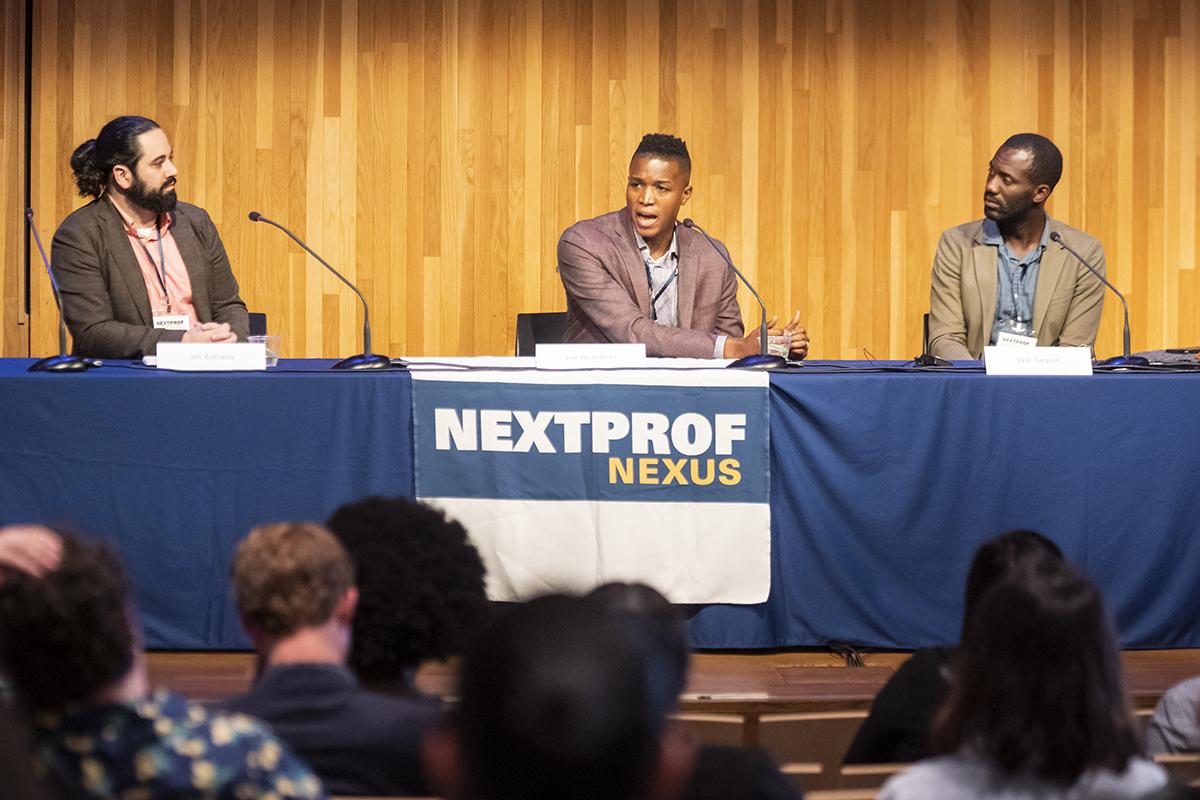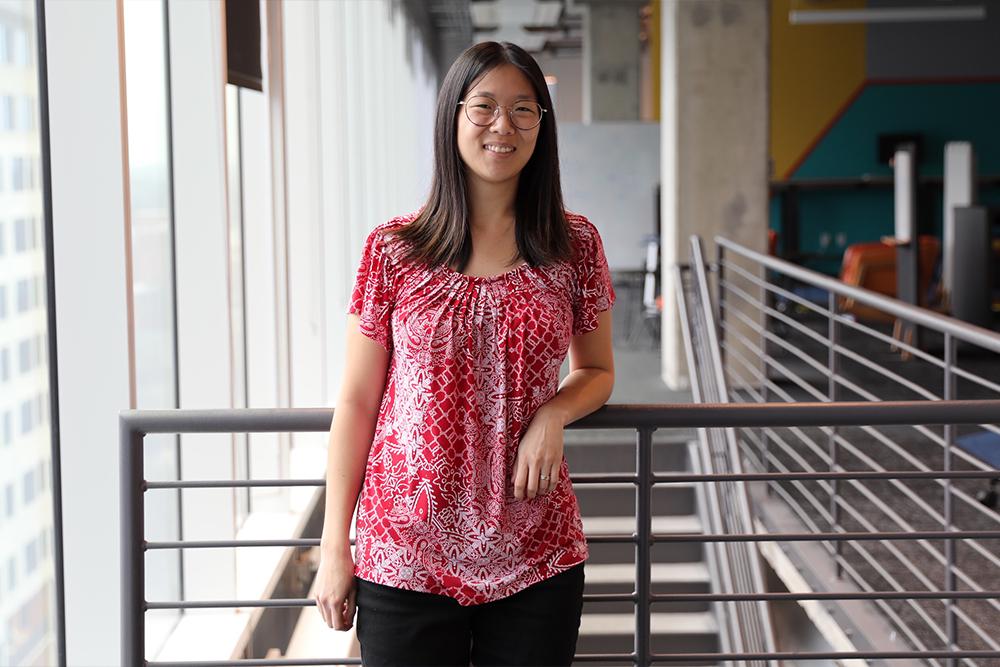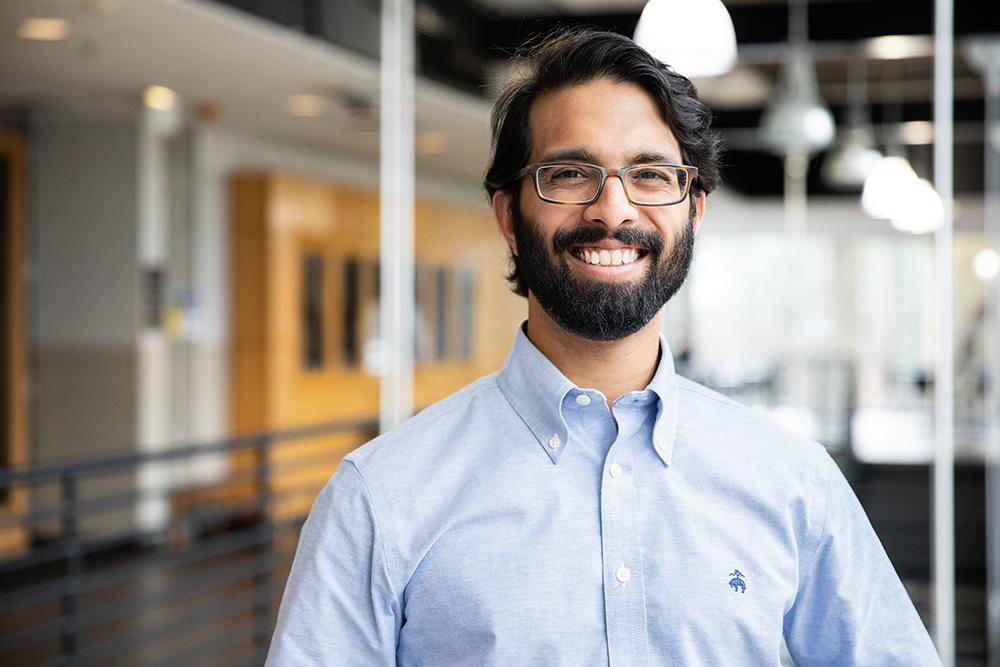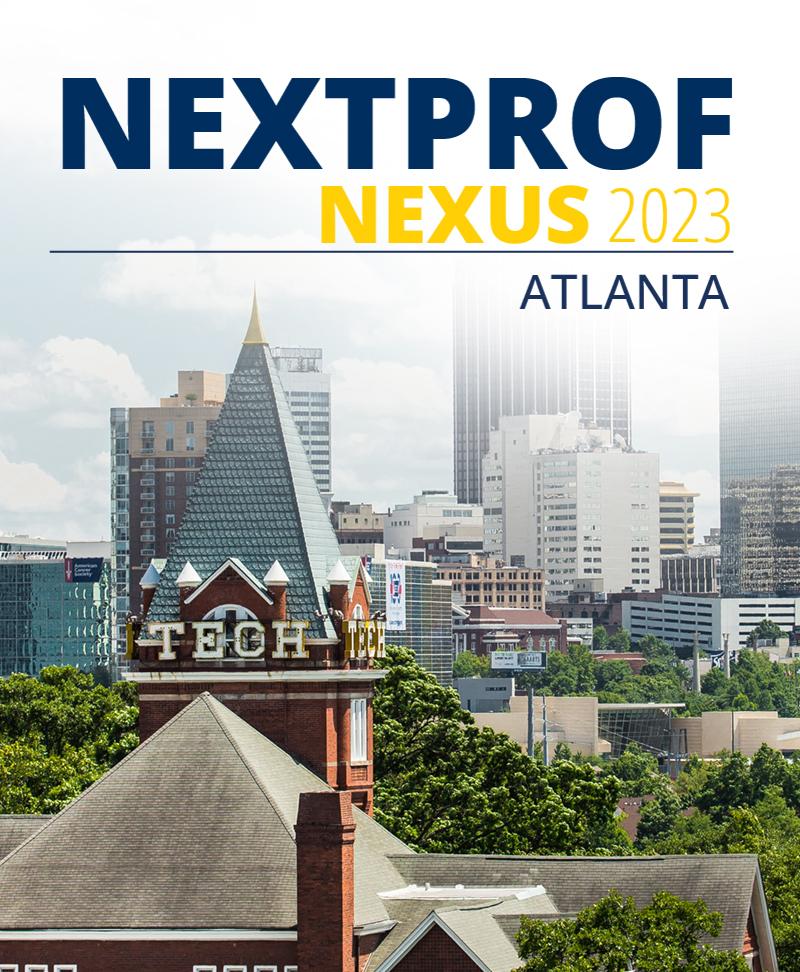Georgia Tech helps lead national effort to expand the ranks of new faculty members and prepare talented applicants for their first faculty role.

Civil engineering assistant professor Joe Bozeman speaks on a panel at NextProf Nexus 2022 in Berkeley, California. The Georgia Tech College of Engineering will host the 2023 event in Atlanta. Applications are due by May 1.
Every year, the NextProf Nexus program seeks to prepare up-and-coming academics for the job search and transition into faculty positions. But for Shreyas Kousik and Elizabeth Qian, both recently appointed Georgia Tech faculty members, NextProf offered much more than professional assistance — both walked away with connections that outlasted the program.
In fact, Kousik and Qian met at NextProf 2021, kept in touch, and have built a friendship that continues now that they’re both in the College of Engineering.
“The importance of social engagement and connection is so often overlooked in engineering,” Kousik said. “But it was one of the most wonderful things that I got out of NextProf.”
August 28-31
Atlanta, Georgia
Applications due May 1 at 5 p.m.
The three-day program, a joint effort of Georgia Tech, the University of Michigan, and the University of California, Berkeley, offers workshops, panel discussions, and opportunities to network with potential mentors and collaborators. This year, NextProf will gather a select group of future faculty members in Atlanta Aug. 28-31, the second time Georgia Tech has hosted the program since its inception in 2019.
The program seeks to support the career development of traditionally underrepresented groups in academia. Engineering Ph.D. students and recent doctoral graduates of any ethnicity, race, sexual orientation, gender identity, age, ability, socioeconomic status, and background who are U.S. citizens and permanent residents are eligible to apply.
“I had attended several similar events, but NextProf was the most in-depth and insightful,” said Qian, assistant professor in the Daniel Guggenheim School of Aerospace Engineering and the School of Computational Science and Engineering. Her research at the intersection of the two disciplines develops computational methods for engineering design and operational decision-making — for example, an analysis method that has been applied to NASA’s James Webb Space Telescope.
“I remember that Kim Kurtis gave me a clear idea at NextProf of what the application process and the first few years of faculty life would look like,” Qian added. “I walked away with the sense that Georgia Tech really cares about its junior faculty.”

Elizabeth Qian

Shreyas Kousik
Kurtis is associate dean for faculty development and scholarship in the College of Engineering and one of the organizers of the NextProf Nexus program.
“For me, meeting these early career researchers and educators is energizing, just imagining the possible pathways their careers can take,” Kurtis said. “We are thrilled that we have been able to recruit seven NextProf Nexus alumni to our faculty at Georgia Tech, and dozens of the program’s alumni are in academic positions all around the country.”
The NextProf admissions committee seeks candidates who can demonstrate a commitment to making engineering more inclusive and equitable. Qian, a woman of color, said she appreciated the awareness and discussion around barriers to equity during the program.
“I strongly believe in the ideal of higher public education, that any student who is motivated should have the opportunity to have a rewarding life and career,” she said. “We don’t always achieve this, but getting closer to the ideal of equal opportunity is a worthy goal.”
Kousik focuses on robot safety as an assistant professor in the George W. Woodruff School of Mechanical Engineering. He said expanding access to engineering education and more equitable access to the products of innovation were among the factors that influenced him to pursue academia in the first place.
“Engineering does not happen in a vacuum, and we want students to be building things — like robots — for everyone,” he said. “Through NextProf, I knew that there were already people at Tech who cared about working on diversity, equity, and inclusion in engineering.”
Kousik earned his undergraduate degree from Georgia Tech, so returning as a faculty felt like coming home. As an alumnus, he hopes to offer his students empathy for their own experiences on campus.
“Students here work really hard,” he said. “Having a professor who’s gone through that will hopefully help them feel seen and appreciated.”
(text and background only visible when logged in)
